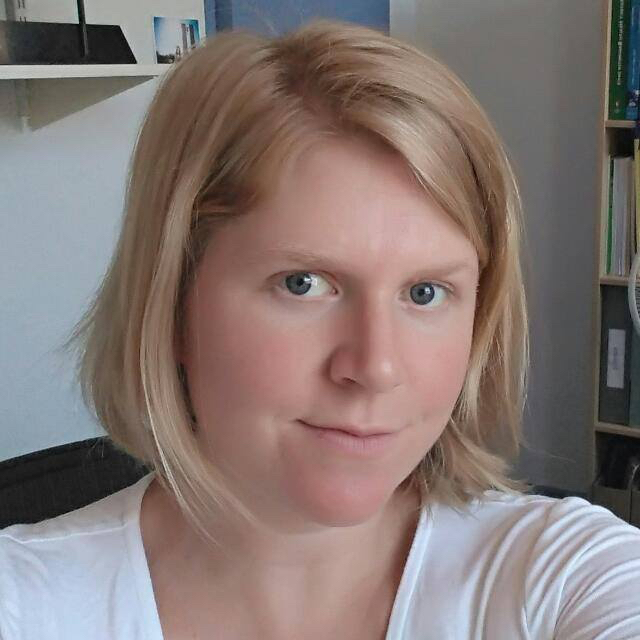Welcome to the Health Economics Division

The Health Economics Division works to improve the performance of health systems in sub-Saharan Africa through policy relevant teaching and research in health economics and health systems.
The key objective of the Division is to teach at the post-graduate level to develop capacity in health economics and related health systems research in Africa. We convene the Master’s in Public Health (Health Economics track), and supervise PhD candidates. We also offer the online postgraduate Diploma in Health Economics which focuses on some of the specific health economic skills and concepts needed in the pursuit of universal health coverage.
Our research maintains a balance between conceptual and applied research as well as between topics of local and international relevance, and focuses on four thematic areas of research, namely universal coverage and financing, governance and decision-making, economic evaluation and social determinants of health. There is a strong emphasis on equity in our research, particularly to identify ways of promoting health system equity. Another area to which we contribute on an on-going basis is the evaluation of cost-effectiveness of alternative preventative, diagnostic and treatment interventions for diseases of major public health concern, in particular TB and HIV.
The Health Economics Division collaborates with a number of South African and international institutions in its research and training activities, and participates in a number of networks. The Division also collaborates with the national and various provincial and local Departments of Health in South Africa on research projects.
The Health Economics Division does not offer Undergraduate Teaching.
The Masters in Public Health (MPH) specialising in Health Economics
The MPH in Health Economics track examines health systems from both the macro- and micro-economics perspectives. The curriculum has a low and middle income country focus, and while theoretical components are included, the programme concentrates on the development of practical research skills that are useful to graduates working in African health systems.
The course is designed for graduates in social or health sciences who have worked/or will work in the health sector in low- and middle-income countries. Masters’ participants are encouraged to undertake their dissertation research in their countries of origin. In this way, the Masters is making a contribution to empirical research of key health economics issues in a range of African countries.
Over 140 students have successfully completed the programme and graduated. Our past graduates have taken up job placements in the academia, public and private establishments and international agencies. The Masters programme has also played a role in raising the profile of the University of Cape Town within the African region. Through financial support from the Sida, the HEU has provided bursaries to 60 students to undertake their Masters studies.
Courses taught by the Division include:
- Quantitative Methods for Health Economists
- Microeconomics for the Health Sector
- Theory and Application of Economic Evaluation in Health Care
- The Economics of Health Systems
Download the programme brochure for more details.
Postgraduate Diploma in Health Economics
The Postgraduate Diploma in Health Economics aims to enable the development of some of the most important health economics capacities needed to support the movement towards Universal Health Coverage, with a specific focus on South Africa and similar contexts. Key content areas include economic evaluation, health technology assessment and strategic purchasing, amongst others.
The diploma is designed as a part-time mixed mode programme (including online learning and contact blocks in Cape Town) aimed primarily for full time employees of governments (Ministries of Health and Finance), health insurance schemes, and international organisations. It takes a minimum of 2 years to complete.
The minimum entry requirement is an undergraduate degree in economics, health sciences, social sciences, or equivalent, from an approved university. Because spaces are limited, entry to the diploma is competitive.
Detailed information is available in the Programme Brochure
The Division offers PhD supervision and is currently hosting 17 PhD students. Since the start of the PhD programme in 1998, 24 PhD degrees were awarded.
The Health Economics Division conducts high quality research in health economics and health systems through its Health Economics Unit (HEU).
Please refer to the HEU web page about Research Activities.
Research Institutions and Universities
- Centre for Health Economics, University of York
- Centre for Health Policy, University of the Witwatersrand
- HEARD - Health Economics and AIDS Research Division
- London School of Hygiene and Tropical Medicine, University of London
- School of Economics, University of Cape Town
- School of Public Health and Family Medicine, University of Cape Town
Networks, Consortiums and Associations
- Consortium for Health Policy & Systems Analysis in Africa
- Resilient and Responsive Health Systems (RESYST) Consortium
- The African Health Economics and Policy Association (AfHEA)
- Health Systems Trust
- International Health Economics Association
- SADC Health Equity Network (Equinet)
International Organisations
Government
|
Edina Sinanovic, Professor and Head of Division 
Email: Edina Sinanovic Phone: 021 406 6575
I am Professor and Head of the Health Economics Division in the School of Public Health at the University of Cape Town. I have training in economics and health economics. I did my PhD at the LSHTM, and have worked in the field of health economics in South Africa since 1997. My research falls within three areas: economic evaluation of health care interventions, especially in relation to tuberculosis, HIV, cancer and STIs; economic considerations in vaccination, with an emphasis on the economic modelling of new vaccines; and the cost of scaling up health care interventions. I have extensive teaching and student supervision experience. I teach Theory and Application of Economic Evaluation in Health Care on the MPH, and Economic Evaluation for Health Care Decision Making on the Postgraduate Diploma in Health Economics. My doctoral students are studying topics including economic evaluation of interventions for prevention of pediatric drug resistant TB, extended cost effectiveness analysis of publicly funded interventions for early detection and treatment of breast cancer, and cost-effectiveness of models of prevention of mother to child transmission of HIV intervention. I am a member of the Executive Committee of the Pharmaceutical & Technology Clinical Management Association of South Africa (PTCMA), with a focus on research and education. I have served on the WHO Immunization and Vaccines related Implementation Research (IVIR) Advisory Committee. In 2020, I was appointed a member of the Strategic Scientific Advisory Board of the Botnar Research Centre for Child Health (BRCCH) at the University of Basel, Switzerland, which is dedicated to advancing global child and adolescent health. |
||
|
Susan Cleary, Professor and Head of School
Susan Cleary is Head of Department and Professor of Health Economics in the School of Public at the University of Cape Town. She joined the School in 2001, becoming the director of the Health Economics Unit (2007-2012), Associate Professor in 2011, Head of School and Director in 2022, and Professor from 2023. She holds a Masters’ in Economics (2001) and a PhD in Public Health specializing in Health Economics (2007), assessing equity and efficiency in HIV-treatment in South Africa. Her work focuses on research, capacity development and policy engagement within the areas of economic evaluation, health care priority setting and universal health coverage. She is interested in considerations of both distributive and procedural justice in health and health care. For the former, areas of interest include cost-effectiveness, affordability and financial risk protection to households from alternative interventions. For the latter, areas of interest include the governance of health technology assessment and related priority setting processes. She plays a key role in teaching health economics at the postgraduate diploma, masters’ and doctoral levels. |
||
|
Olufunke Alaba, Associate Professor 
Email: Olufunke Alaba Phone: 021 406 6576
|
||
|
Lucy Cunnama, Senior Lecturer 
Email: Lucy Cunnama Phone: 021 406 6754
|
||
|
Senzo Mthembu, Lecturer 
Email: Senzo Mthembu
Senzo Mthembu is a lecturer in the Health Economics Division within the School of Public at the University of Cape Town. He teaches in the PG Diploma in Health Economics and the Master of Public Health programmes. Senzo is currently pursuing a Ph.D. in Health Economics from the Institute for Global Health at the University College London, focusing on non-communicable diseases and nutrition. He also holds an MSc in Political Science and Political Economy from the London School of Economics and a Master of Commerce with a specialization in Economic Science from the University of Cape Town. Senzo has previously worked as a Health Economist and researcher for the UK and SA governments, and most recently, the World Bank. He has partnered with several non-governmental institutions across Africa and has been involved in conducting health surveys in collaboration with the World Health Organization on various impactful health projects across multiple countries. His research interests mainly lie at the intersections of public health, political economy, and public policy, particularly policies aimed at reducing non-communicable diseases, strengthening nutrition, and health systems financing. |
||
|
Buhle Ndweni, Lecturer 
Email: Buhle Ndweni
Buhle Ndweni is a lecturer within the Health Economics Division at the University of Cape Town (UCT), South Africa. She holds an MSc Health Economics and Decision Modelling (MSc HEDM) from the University of Sheffield in the UK, funded by the prestigious Chevening scholarship. She’s skilled in building economic models and performing data analysis using various statistical software. She is a PhD Candidate in Public Health at UCT. Her PhD training under the National Institute for Health and Care Research’s (NIHR) International (HIV) Mycoses Prevention, Research, Implementation, Networks and Training (IMPRINT) Global Health Research Group is on evaluating novel interventions for HIV-related fungal infections. She is an awardee of the NIHR Short Placement Award for Research Collaboration (SPARC) grant, which enabled her to receive advanced health technology assessment (HTA) training in the UK as part of her PhD. Buhle also holds a Postgraduate Diploma in Health Economics from UCT, BA Honours in Journalism and Media Studies from the University of the Witwatersrand and BSc Microbial Biotechnology from the University of Stellenbosch. Buhle is also co-chair and founding member of the ‘R-HTA in LMICs’ Chapter that’s an arm of the ‘R for HTA Consortium’ in the UK. The aim of the Chapter is to train health analysts in low/middle income countries learn how to build HTA models using R programming language. She is passionate about global health research and finding innovative solutions to improve access to affordable quality healthcare for all, especially disadvantaged communities within LMICs.
|
Emeritus Professor
| Diane McIntyre |
Honorary Senior Lecturer
| Veloshnee Govender |
Administrative Staff
| Latiefa Adams | Postgraduate Administrative Officer | 021 406 6558 | |
Please refer to the HEU web page about Publications.

